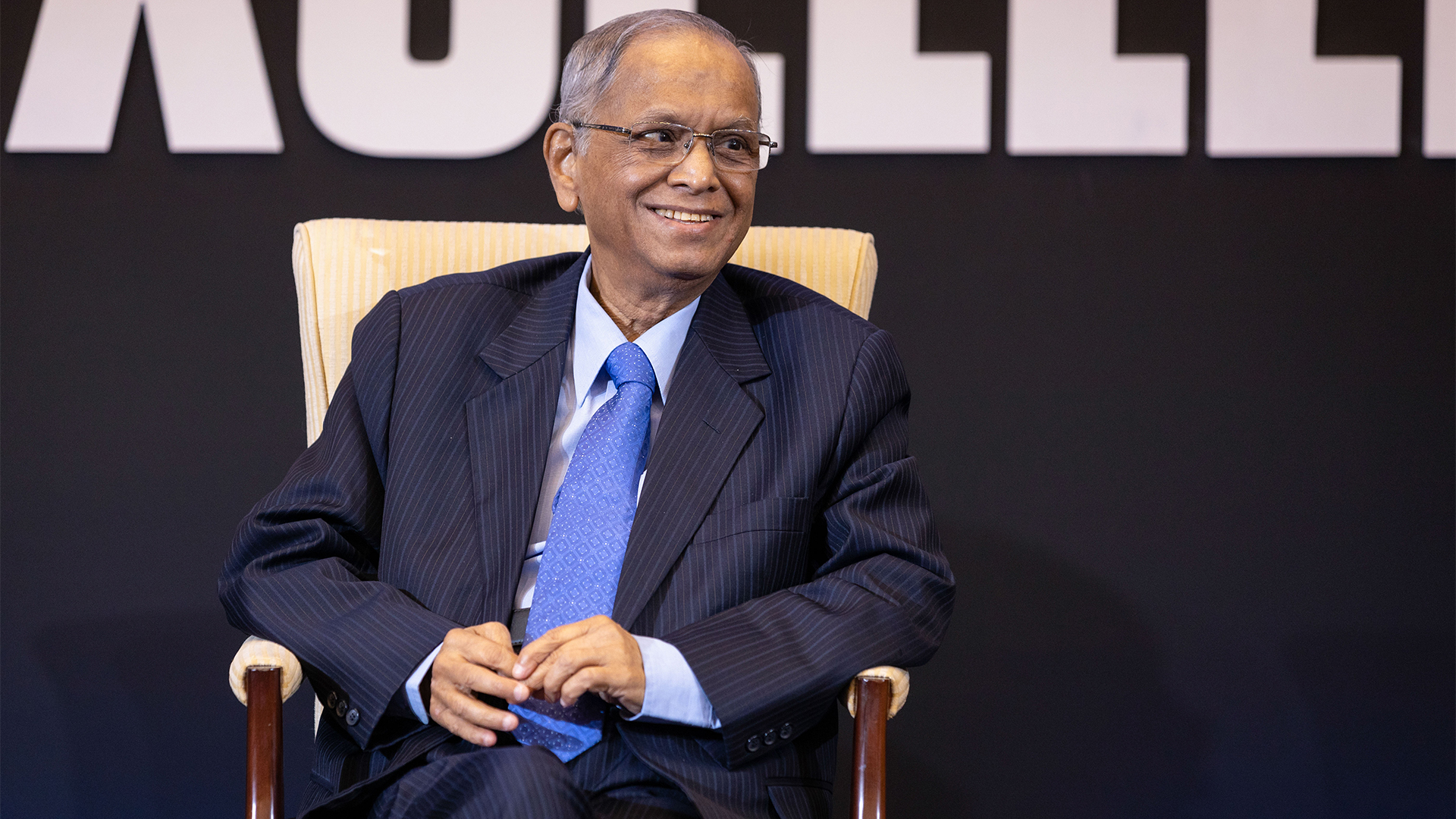How to strike a work/life balance
We are all encouraged to work harder, but how can you find a balance between your work and your life?

Sign up today and you will receive a free copy of our Future Focus 2025 report - the leading guidance on AI, cybersecurity and other IT challenges as per 700+ senior executives
You are now subscribed
Your newsletter sign-up was successful
With businesses trying to do more with less resources, the work/life balance of the modern worker is becoming increasingly challenging.
Tight deadlines, international business dealings, and the ability to work from pretty much anywhere - thanks to smartphones and mobile broadband - at anytime, has resulted in people feeling like they are more 'on the clock' than off it when it comes to treading the line between chasing results at work and getting some downtime at home.
Some people might thrive in such a situation, but others could struggle, especially if they have an equally demanding family life. As such, those who fail to get the balance right can end up running themselves down and getting increasingly stressed, tired and even ill.
This is particularly true of people who work as freelancers, contractors or who are part of a startup trying to make it big, as often the normal checks and balances of working hours and culture tend to be eschewed in favour of chasing lofty goals and, in some cases, simply making ends meet.
So to remain a productive worker without burning out it is ever-more important to strike a healthy work/life balance. These following tips can set you on the right path to achieving that day-to-day nirvana.
Keep track of time
You may not realise the number of hours you put into work, so keeping a time log of everything you do for one week, including work-related and personal activities, is helpful. This should help in understanding just how your time is used and abused.
Sign up today and you will receive a free copy of our Future Focus 2025 report - the leading guidance on AI, cybersecurity and other IT challenges as per 700+ senior executives
Define priorities
When it comes to the private and personal, you need to think about what is more important. List the top priorities at home and work. Look at how you spend your time, then questions what you need to do more of or less of, as well as what things you need to start doing as well as the things you need to stop. Also look at what can be done differently.
Schedule your objectives
Once you have your priorities in order, you need to transform them into tangible and quantifiable objectives. Use a calendar to schedule activities as you would for business meetings or appointments.
Plan carefully
To achieve a work/life balance, you must plan carefully and stick to the plan. One calendar should be used for both work and life as you can't do two things at once; this schedule is how you turn objectives into reality. You also need to set aside time each day to plan activities and tasks for the following day.
Create limits
You can't do everything you want if you want to have a less stressful life. Setting boundaries and communicating these to managers, colleagues, and family is necessary. You might not want to work late on some days unless there is an emergency. You also need to find time at home to put the laptop and smartphone away to avoid the temptation to check emails and social media.
Be good to yourself and your health
Without good mental, physical and emotional health your work and personal life will be suffer. Make sure you eat nutritious meals and schedule time for exercise three times a week. Also, getting a good night's sleep is important too. Following this will decrease stress, boost energy levels and make you a more productive person.
Make time for yourself
Work, relationships and health are important but you will also need to make time for yourself. This could be going for a walk or learning new skills unrelated to work. A half-hour of doing something else can work wonders for your welfare.
What goes on at work, stays at work
It is important to delineate what is work and what is home. Scheduling activities such as exercising straight after work can help in preventing the temptation to spend another few minutes on sending that important work email.
Rene Millman is a freelance writer and broadcaster who covers cybersecurity, AI, IoT, and the cloud. He also works as a contributing analyst at GigaOm and has previously worked as an analyst for Gartner covering the infrastructure market. He has made numerous television appearances to give his views and expertise on technology trends and companies that affect and shape our lives. You can follow Rene Millman on Twitter.
-
 Are we facing an AI-fueled talent pipeline crisis?
Are we facing an AI-fueled talent pipeline crisis?In-depth As experts say AI is reducing entry-level roles, what does this mean for the seniors of tomorrow and the future of business?
-
 Openreach urges businesses to move quickly as PSTN switch-off looms
Openreach urges businesses to move quickly as PSTN switch-off loomsNews Businesses face massive price hikes if they fail to act before the PSTN switch-off
-
 Infosys co-founder Narayana Murthy called for a 70 hour week last year — now he says that’s not enough
Infosys co-founder Narayana Murthy called for a 70 hour week last year — now he says that’s not enoughNews Murthy thinks longer hours akin to China’s '996' approach are the key to success
-
 Microsoft could be preparing for a crackdown on remote work
Microsoft could be preparing for a crackdown on remote workNews The tech giant is the latest to implement stricter policies around hybrid working without requiring a full five days in the office
-
 IT professionals aren’t budging on flexible work demands – and more than half say they’ll quit if employers don’t meet expectations
IT professionals aren’t budging on flexible work demands – and more than half say they’ll quit if employers don’t meet expectationsNews Analysis from Randstad shows 40% of UK-based IT pros have quit over a lack of flexible work options, while 31% of workers globally have done the same.
-
 'The tide seems to be turning towards office attendance': 64% of hybrid business leaders want staff back in the office – but many worry that enforcing RTO mandates will drive employees away
'The tide seems to be turning towards office attendance': 64% of hybrid business leaders want staff back in the office – but many worry that enforcing RTO mandates will drive employees awayAnalysis Many UK business leaders want their staff back in the office more frequently, but they’re scared to implement return to office (RTO) mandates in fear of worker revolts.
-
 Employees are dead set on flexible working arrangements – three quarters would turn down a role that didn't offer hybrid options as work-life balance becomes more important than pay
Employees are dead set on flexible working arrangements – three quarters would turn down a role that didn't offer hybrid options as work-life balance becomes more important than payNews New research shows workers are increasingly demanding flexible working arrangements from employers.
-
 Nearly half of tech workers are seeking new roles – declining employee benefits and reduced flexible working options have staff looking elsewhere
Nearly half of tech workers are seeking new roles – declining employee benefits and reduced flexible working options have staff looking elsewhereNews While salaries are rising for tech workers, other benefits are in decline, leading to a fall in job satisfaction
-
 Untethered: How CIOs and CISOs are paving the way for the new hybrid workforce
Untethered: How CIOs and CISOs are paving the way for the new hybrid workforceWhitepaper Effective techniques to transition from exposed legacy infrastructure to an effective zero trust strategy
-
 Unified endpoint management and security in a work-from-anywhere world
Unified endpoint management and security in a work-from-anywhere worldWhitepaper Learn how to converge endpoint management and security processes and systems to drive efficiency and reduce risk


